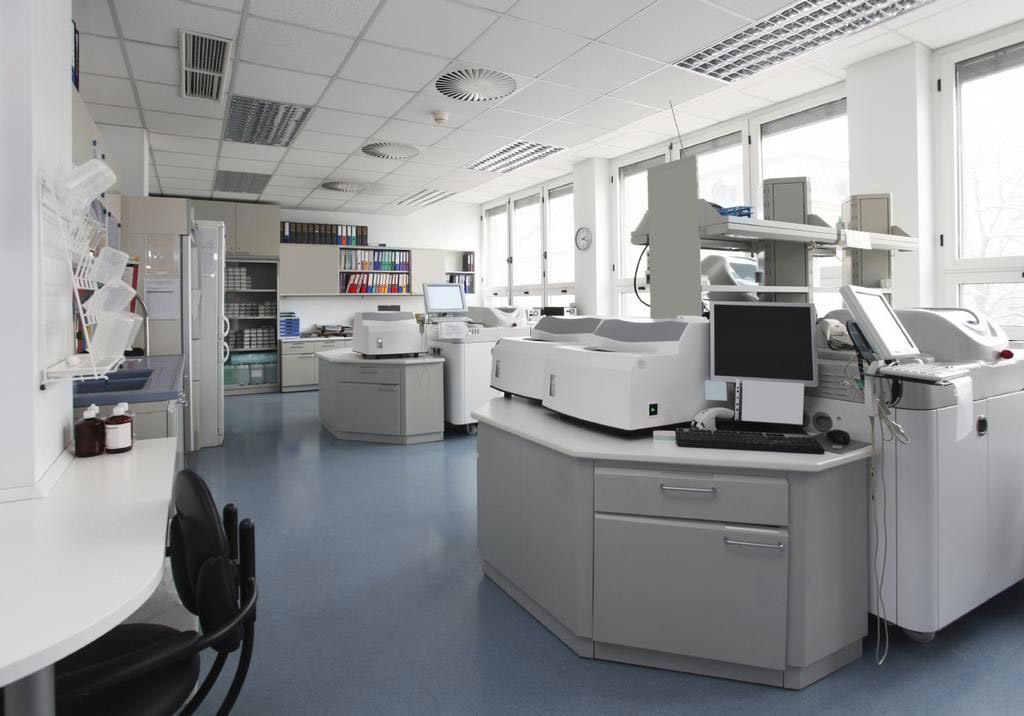All the steps starting with data collection from patients to analysing test results and generating reports fall under the purview of Clinical Research Laboratory. A clinical research laboratory today has become a Centre of Excellence (CoE) and leading the pack for revenue generation for hospitals, practitioners and pathologists.
 Managing information in a laboratory has always been prone to human error, furthermore in the date of information where every single click on a computer leads to huge amounts of data and its analysis, data management is of utmost importance.
Managing information in a laboratory has always been prone to human error, furthermore in the date of information where every single click on a computer leads to huge amounts of data and its analysis, data management is of utmost importance.
Every Clinical Research Laboratory whether big or small has some challenges which it faces day in and day out. These challenges require time and management to work around which leads to inefficiency in the day. One of the most critical challenges in a clinical laboratory is the challenge of Clinical Data Management.
Data Management: Massive amounts of data are generated every day in a lab which is critical and laborious.
Data Centralization: Globalisation has impacted almost everything in the last few years and with the internet penetration, the focus is on having a central database of patient and products – seamless, secure and round the clock accessible. What is more important is the increase in multi sites and multi-locations for labs and hospitals.
Compliance: A secure chain of custody of records, approvals at multiple levels, maintaining audit trails, the integrity of data and confidentiality is of utmost importance.
Real Time Tracking: In the world of internet, a lab manager’s duty is no longer limited to getting the tests done and waiting for patients to visit physically to take the report. The role has evolved to an extent that every lab manager needs to have real time tracking of all reports and tasks being completed in his lab. He needs to have a control on things and needs to share control with the patients through better service.
In the last few years, hospitals and labs have more and more been accepting to lab automation. Automation not only provides relief to the lab managers by solving modern day problems but also reduce the chance of human error in reporting results of tests.
Here are some ways in which Lab Automation is streamlining how work is done in a lab:
- Immune to Human Error: In a fast paced work environment, there can be no chances of errors due to human factors. Automation does precisely that. It reduces dependence on human understanding and makes processes to find solutions to business problems and tasks. Need we say, faster!
- Increase Data Flow: A Laboratory Information System does an analysis of data which is being generated at labs around the world. It also helps contribute to the betterment of the industry by supplying new data as and when found. So, almost every lab in the world can know of a new virus discovered in Botswana and work on preventing its outbreak.
- Compliance: Gone are the days when a compliance officer at a lab was responsible for all and everything. Today all compliances are done and completed at the click of the mouse button, that too without any specialised computer skills.
- Data Collation: Collating data and compiling it is easy now because of the modern lab systems. Patients don’t need to worry about providing data and history every time whenever they visit a lab. Patient data is available on secure servers and ready to be accessed 24 hours for information. Plus, what’s more! Patients don’t need to wait until 10 AM in the morning to get their reports when the lab opens. They can simply log in and check their report at a time convenient to them.
Yes, the world is moving on towards automation of labs. Are you?
